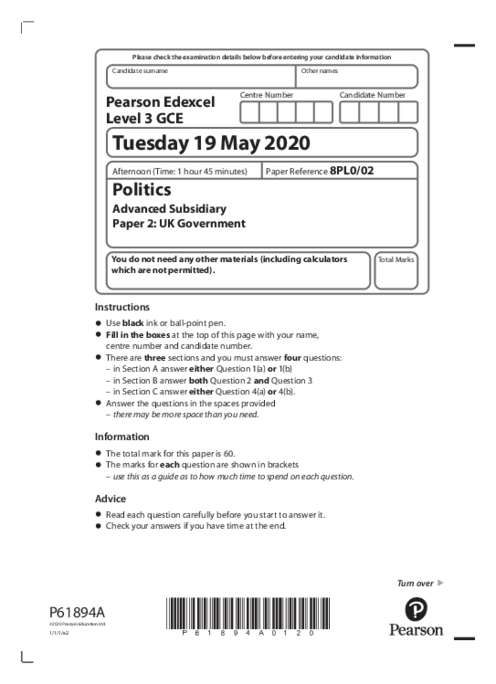Politics 8PL0/02 October 2020
omer uner
1. House of Lords main functions: legislative revising and scrutinizing bills, delaying legislation, providing expertise and experience, acting as a check on the Commons, representing non-elected perspectives, and judicial role prior to Supreme Court establishment.
2. Codified constitution features: single written document, entrenched legal status, clear rules on government powers and citizens′ rights, judicial enforcement, rigid amendment process, and clarity of constitutional principles.
3. Individual ministerial responsibility: ministers accountable personally for their actions, resignation required if misleading Parliament or personal misconduct occurs (e.g., Amber Rudd resignation for misleading Parliament).
4. Collective cabinet responsibility: Cabinet unity on decisions, all ministers support government policy or resign, ministers resign over disagreements on key policies (e.g., Brexit-related resignations of David Davis, Dominic Raab, Boris Johnson).
5. House of Commons effectiveness debate: criticism for limited influence under strong majority governments, inefficiency in controlling government agenda, resistance to change; counterarguments highlight effective government operation, historical successes of Private Members Bills, and valued MP networking in division lobbies.
6. Prime Minister’s power: balance between dominance over Parliament and control of the Executive; pre-1997 and post-1997 PMs show differing extents of parliamentary dominance versus executive control; Supreme Court influence considered greater over Executive than Parliament in some views.
See More Paper 2 8 months ago
Politics (8PL0) Subject directory
All resources in one place
Related Past Papers
Related Tutorials
Crash report
